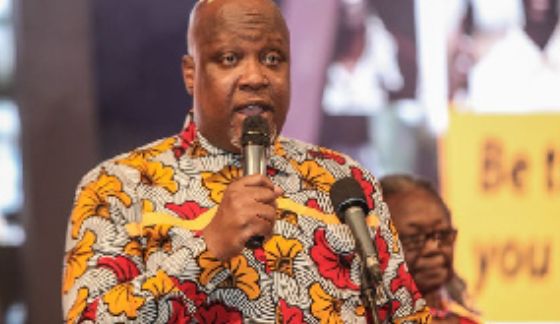Why judges break their pens after passing a death sentence

The practice of breaking pens after passing a death sentence is a symbolic tradition rather than a universal or formalized ritual. It’s not something that all judges do, nor is it a requirement of any legal system.
However, some judges or court officials may choose to break a pen or pencil as a personal gesture to symbolize the weight and seriousness of the decision they have made.
The act of breaking the pen may signify finality, solemnity, or the irreversible nature of the decision to impose a death sentence. It can serve as a moment of reflection on the gravity of the judgment and the impact it will have on the individuals involved, including the convicted person, their loved ones, and society as a whole.
Many people also believe that by breaking the nib of a pen, judges symbolically express that a pen used to sign a death sentence should not be used for any other purpose.
“The tradition of breaking the nib after passing a death sentence can be traced back to the Mughal era in India. It was during this period that the Mughal Emperor would break the quill used to sign off on death sentences…,” Indian lawyer Subhash Ahlawat wrote on his website.
“Breaking the nib is a symbolic gesture representing the judge’s heavy heart in passing such a grave sentence. It underscores the immense responsibility and emotional burden associated with deciding someone’s fate,” he added as he listed how symbolic the act is.
“Once the nib is broken, it can no longer be used to write. This symbolizes the finality and irrevocability of a death sentence, as it cannot be undone once it has been passed.”
That explanation was corroborated by Poorvi Sirothia, also an Indian lawyer, in a writeup published on indianlegalsolution.com on October 11, 2020.
“After the appointed authority passes capital punishment, he has no capacity to audit or renounce his request. So once the sentence has been granted and the adjudicator’s mark inked, the nib is additionally broken, emblematic of the way that the appointed authority can’t drop or revamp the judgment in the event that he/she has a difference in heart or psyche,” a part of his literature read.
Death sentence in Ghana
Ghana’s parliament, in July 2023, voted to abolish the death penalty, joining a long list of African countries, including Equatorial Guinea, Central African Republic, Chad, Benin, Sierra Leone and Zambia, that had done so in recent years.
At the time, the nation had 170 men and 6 women awaiting execution on death row. With the abolition, their sentences were to be substituted with life imprisonment.
“On death row, prisoners woke up thinking this could be their last day on earth. They were like the living dead: psychologically, they had ceased to be humans,” said Francis-Xavier Sosu, a human rights lawyer and Member of Parliament for Madina who put forward a bill to amend the Criminal Offences Act.
“Abolishing the death penalty shows that we are determined as a society not to be inhumane, uncivil, closed, retrogressive and dark.”
Largely, crimes punishable by death include murder and treason. While Ghana’s last execution was in 1993, according to Amnesty International, twenty (20) countries executed people in 2022, compared with eighteen (18) in 2021.
Amnesty International reported that at least 2,016 death sentences were imposed in 2022 across 52 countries. Globally, it is estimated that at least 28,282 people were under sentence of death by the end of 2022.
Source: www.ghanaweb.com





